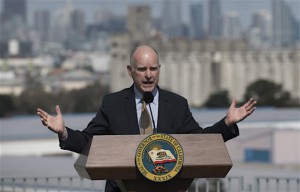
The Trump administration plans to eliminate California's ability to set its own emissions standards.
The Trump administration appears ready to make good on its threat to revoke the State of California’s ability to set its own emissions and fuel economy rules as part of its efforts to ease the restrictions on vehicles in the U.S.
The move would also eliminate California’s ability to mandate the purchase of electric vehicles, Reuters reported.
For more than three decades, the state has been given an exemption because of air quality issues in the state that were not being resolved using the federal mandate. California officials have long said they will sue if the Environmental Protection Agency makes good on the threat.
According to Reuters, the EPA and the U.S. Department of Transportation plan to hold hearings on the matter later, but the proposed ruling could come as soon as Thursday. The move is part of an overall plan to freeze emissions and fuel economy standards at 2020 levels until 2026.
(EPA submits proposals on CAFE standards. Click Here for the story.)

California Gov. Jerry Brown has sharply criticized efforts to roll back mileage standards, adding the state would file suit against any effort to revoke its waiver.
The Obama administration had proposed a tougher standard requiring a corporate average fuel economy of 54.5 mpg, which in real world numbers is closer to the low 40 mpg range, a number automakers have said they can meet.
However, freezing national emissions standards after 2020 would increase U.S. fuel consumption by about 500,000 barrels of oil per day, according to regulators. Government regulators also estimate the regulation, which they name the Safer and Affordable Fuel Efficient (SAFE) Vehicles rule, will cut traffic deaths and reduce the cost of new vehicles, Reuters reported.
(Click Here to see more about the auto industry backing away from CAFE cuts.)
The California Air Resources Board (CARB) manages the the state’s ZEV program, although it has also been adopted by Connecticut, Maine, Maryland, Massachusetts, New Jersey, New York, Oregon, Rhode Island, Vermont and the District of Columbia and now Colorado. Three other states, Washington, New Mexico and Pennsylvania have adopted similar rules.
Special provisions in the federal Clean Air Act allow states to either follow the federal requirements or adopt California’s vehicle emission regulations. Many of the states have already stated they would sue if the waiver were eliminated.
(To see more about former EPA Chief Scott Pruitt’s resignation, Click Here.)
Eliminating California’s electric vehicle mandate would hurt automakers like Tesla, Nissan and General Motors that are investing billions in EVs. The state is the largest market for EVs in the United States.
